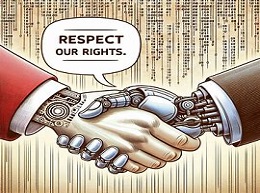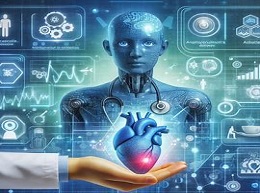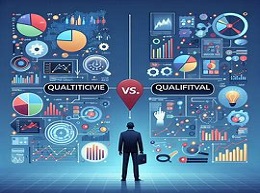The Intersection of AI and Human Rights

Artificial Intelligence (AI) holds immense promise for shaping the future, but the intersection of AI and human rights raises crucial questions about ethics, fairness, and the potential impact on societal values. This article navigates the complex terrain where technology and human rights converge, offering insights, examples, and a critical examination of the challenges at hand.
1. Balancing Innovation and Human Rights:
Embark on a journey into the intertwining realms of AI and human rights. Understand the delicate balance required to harness the potential of AI while upholding fundamental human rights principles.
2. AI in Surveillance: A Double-Edged Sword:
Explore the implications of AI-powered surveillance on privacy and civil liberties. Examine cases where facial recognition technology and predictive policing intersect with human rights concerns.
Example: Facial recognition systems leading to unwarranted surveillance and potential misidentification, impacting personal freedoms.
3. Algorithmic Bias: Unmasking Inherent Prejudices:
Delve into the issue of algorithmic bias and its impact on marginalized communities. Understand how biased datasets and flawed algorithms can perpetuate discrimination, exacerbating existing social inequalities.
Example: Biased hiring algorithms perpetuating gender and racial biases in the recruitment process.
4. AI in Law Enforcement: Striking a Balance:
Examine the role of AI in law enforcement and the challenges it poses to human rights. Discuss the ethical considerations surrounding predictive policing and the use of AI in criminal justice systems.
Example: Predictive policing algorithms raising concerns about discriminatory practices and reinforcing existing biases.
5. AI and Freedom of Expression: Navigating the Digital Space:
Explore the impact of AI on freedom of expression in the digital age. Discuss issues related to content moderation, censorship, and the challenges of striking a balance between safeguarding online spaces and respecting individual freedoms.
Example: Social media platforms using AI for content moderation, raising concerns about censorship and stifling free speech.
6. AI in Healthcare: Ethical Considerations:
Examine the ethical considerations surrounding AI applications in healthcare. Discuss the balance between leveraging AI for medical advancements and ensuring privacy, consent, and equitable access to healthcare resources.
Example: AI-powered medical diagnosis tools raising questions about data privacy and the potential for healthcare disparities.
7. AI and Discrimination: Mitigating Unintended Consequences:
Delve into efforts to mitigate discrimination in AI systems. Explore strategies such as fairness-aware algorithms and ethical guidelines to address unintentional biases in AI applications.
Example: Implementing fairness-aware algorithms in credit scoring systems to reduce discriminatory practices.
8. Transparency and Accountability in AI: Building Trust:
Explore the importance of transparency and accountability in AI systems. Discuss initiatives and regulations aimed at ensuring responsible AI development and deployment.
Example: Implementing regulations requiring companies to disclose the use of AI in decision-making processes to enhance transparency.
9. Towards Ethical AI: Charting the Future:
Discuss the ongoing efforts to create ethical AI frameworks. Explore the role of interdisciplinary collaborations, ethical guidelines, and public awareness in shaping a future where AI aligns with human rights principles.
Example: Organizations adopting ethical AI principles and engaging in public discourse to ensure responsible AI development.
The intersection of AI and human rights requires a thoughtful and proactive approach to navigate the challenges and harness the potential benefits. By addressing ethical concerns, promoting transparency, and advocating for inclusive practices, society can strive to ensure that AI contributes to a world that upholds fundamental human rights values.
Embark on a journey into the delicate balance of AI and human rights. Explore examples, challenges, and the quest for ethical AI in shaping a just society.














